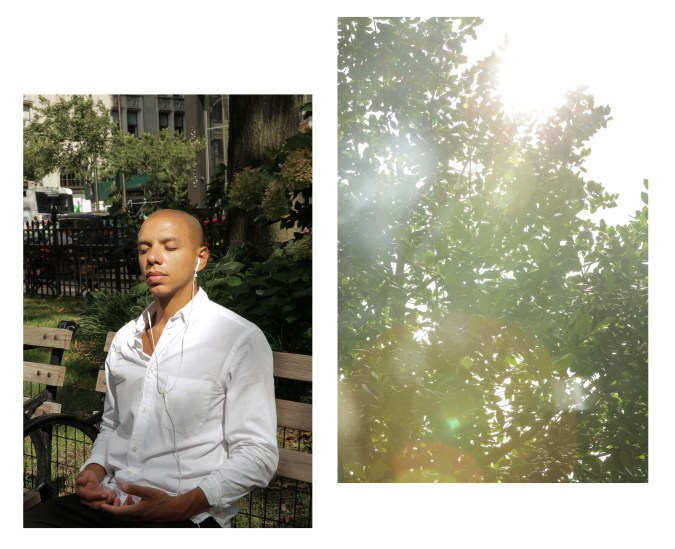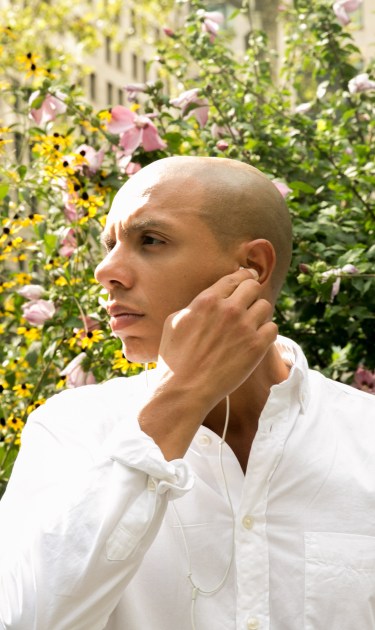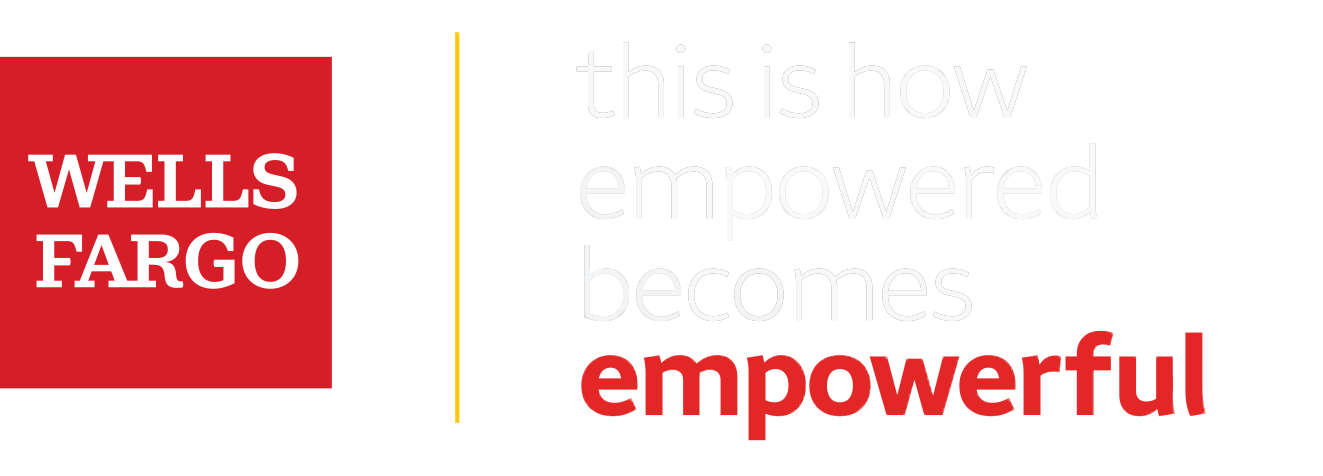“I went through a dark period of overwhelming amounts of stress, anxiety and feeling a lack of purpose.” Like many of us, entrepreneur Julio Rivera has gone through difficult times that have taken a toll on him. As he moved from goal to goal, he didn’t leave enough space for his mental health. By 26, he felt burned out. But by seeking help, Julio began to heal, and it inspired him to create Liberate Meditation, an app aimed at communities of color.
For Rivera, it was more than just getting help; it was about feeling at home with other people of color. So when he created Liberate Meditation, he wanted other POCs to have a similar experience. It started at New York Insight Meditation Center for Julio.
“They have a POC sangha [a Buddhist monastic order] that meets every first and third Monday of the month,” Rivera tells Remezcla. “I found that sitting in communities for people of color like that, I was able to let my guard down and being able to let my guard down, I was able to be more vulnerable about my challenges moving to this world, and I have had a difficult time with showing compassion to myself.”
His app gives users the opportunity to find classes based on topics (Mindfulness of the Body, Recognizing Self-Doubt, Ashé: Becoming Ancestors & Powerful and more) or by teachers (all of them belonging to communities of color). It takes the needs of people of color into considerations on so many levels, making Liberate Meditation one-of-a-kind.
Read on to learn more about Julio and the powerful app he created.
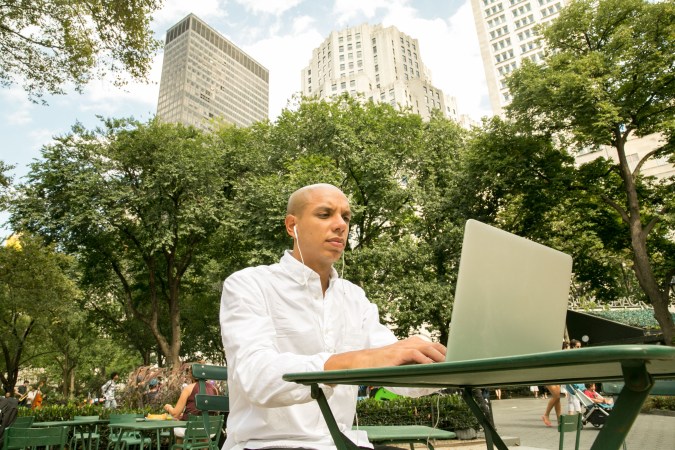
What inspired you to create this app?
What inspired me to create Liberate was really the transformation that I experienced in sittings in Buddhist communities of color… Through kind of sitting in communities for people of color, I was able to be more vulnerable and share more about my own challenges. And I also think the safety that I felt in the room also allowed me to experience the teachings that the teachers were giving in a new way as well. I think it’s one thing to intellectualize a teaching, and it’s another thing to embody it and feel it and kind of let it hit you, for you to see and discover ways in which these teachings can apply to your day-to-day life.
I just also felt empowered. I left these communities feeling so empowered that I could change the relationship to my suffering. And when you’re in a deep dark period and or activated heavily by trauma, sometimes it’s very hard to see that there’s a light. There’s a way of living that’s outside of the way that I am right now. And you also feel that you’re disconnected and alone and you’re the only one going through your suffering. That empowered feeling was what really inspired me to create Liberate. Really kind of these transformational experiences that I experienced in these communities allowed me to feel this sense of empowerment. And there was a period in my kind of meditation practice that I could no longer go to these communities. I had struggles with my own meditation practice, so I wanted to build something.
What were you looking for exactly?
Well, at first I looked for resources to support me in my practice, and it was so hard to find anything. And I was shocked. I looked online and I didn’t find any apps or any resources that really resonated with my experience as an Afro-Latino trying to figure out, “Well, why do I have this abusive inner voice inside of my head?” I looked around, and I didn’t find any resources and was shocked by that. I was also shocked when I talked to a lot of other people of color, and they were going through the same challenges. I felt that that was a calling to be of service and that’s why I created this app.
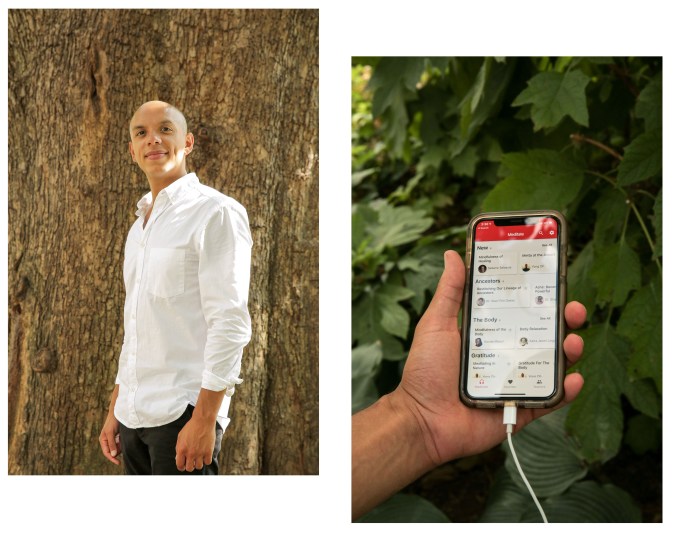
How did your background prepare you to take on this venture?
I kind of grew up very young learning how to program and self-teaching myself how to build websites. In college, I really knew that I wanted to do this professionally, be a programmer. I’ve been building websites and building small applications. So I went and did my undergrad and master’s in software engineering, and my first job out of school was at Priceline.com. I self-taught myself how to build iPhone apps with the kind of background in programming. It was pretty straightforward to teach myself how to build iPhone apps. I really learned there, really got a foundation of how to build for large applications.
I’ve spent the last eight years doing it. When I realized that there was not a lot of resources out there for folks of color, it was like, “well, of course I can build something, and not only to help my own practice selfishly but the practice of others.” I’ve started a company before and learned a lot from that. So I’m also applying those learnings into a growing library.
How does it take the needs of people of color into consideration?
To be honest, when I first started Liberate, I just knew that there were teachers of color that really resonated with me but I couldn’t pinpoint exactly why. It’s only now that I’ve gone through kind of my awakening around race that I can share that with you in a well-articulated way…
When I released Liberate, I released it only to a few folks, kind of like a beta launch. I put it in the App Store, and I only told a few people about it, and I noticed after a week that the users jumped by like three times. That was a big jump for me back then. The impact, the people that were… the things that they were sharing about Liberate were just so like, ‘Oh my God, I’ve been needing this.’
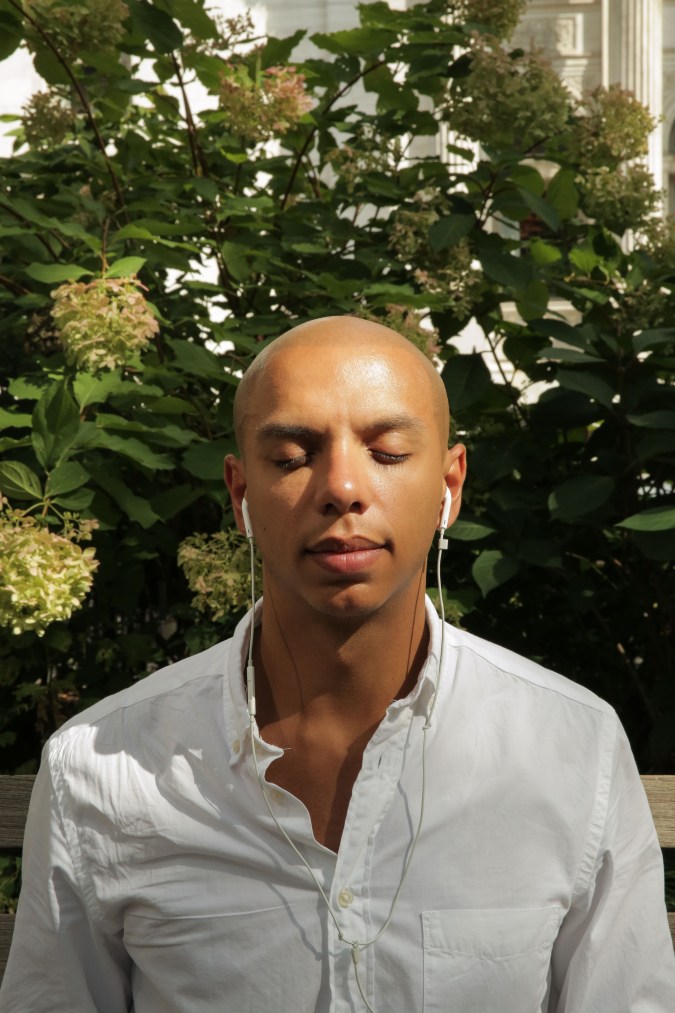
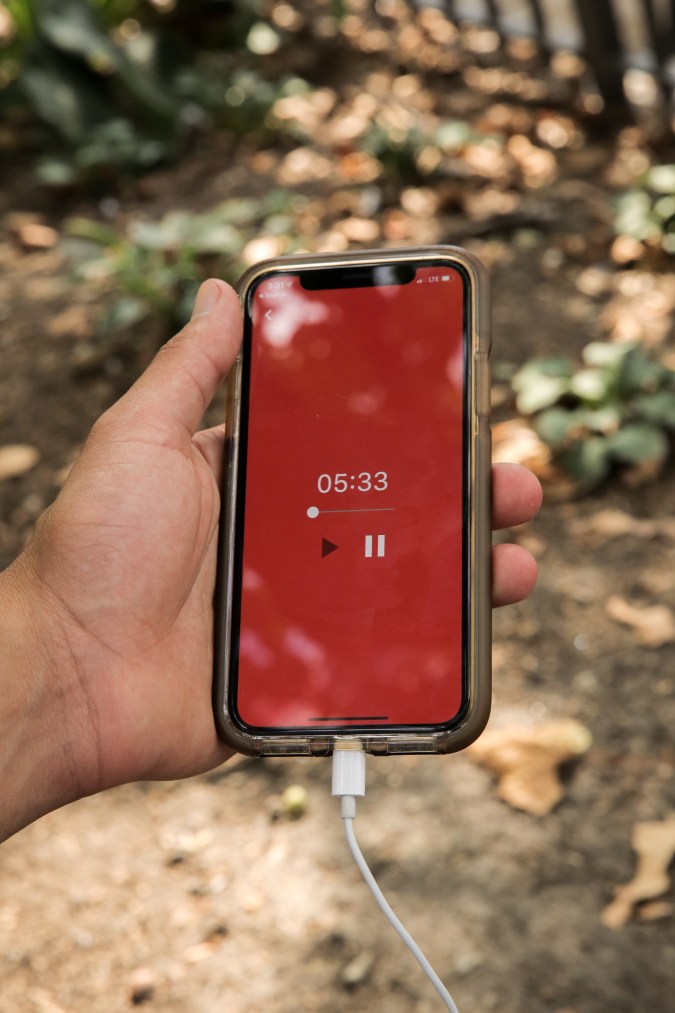
I got on the phone with a lot of these people and [was] like, ‘Why are we using Liberate?’ And the people that were using Liberate [predominantly] at the beginning were mostly Black women. I was learning so much about, well, what [are] microaggressions? What do microaggressions look like? And in a day-to-day experience? And how does that impact women? I really [learned] how there were feelings of not belonging, feelings of being invisible and not being able to move in this world really comfortable and truly who you are.
[I] learned about microaggressions, and then, we started putting out meditations around kind of dealing with microaggressions and feeling a sense of belonging and loving yourself. And that really resonated with the community.
If we really want to create a new world for ourselves, right, we really need to celebrate each other and love each other and really create safe spaces with each other that allow ourselves to heal this oppression, this trauma, this colonized way of thinking. I think that there’s so much opportunity when we heal that we can show love to ourselves and show love to others, and this is just the beginning of the journey for me.
What’s the next phase for Liberate?
What really has got us here is the content, offering this content, these teachings in a very accessible way. So it’s continuing down that path. I feel like there’s a huge opportunity for us to be more personalized with the meditations… really acknowledging, I think the intersections that our community has. So doing more. We’re releasing meditations for men of color, and I think you could even drill that down even more. We don’t have these meditations specifically, but like meditations for Black men and Latinx men and Indigenous men and going through specific situations. And then also like drilling down and offering more meditations to more of our folks that are being oppressed and marginalized, which is the queer, LGBITQ+ community, trans and offering meditations in that.
So yeah, more of these tailored meditations for our community depending on your gender, your identity and your class. Classism, I think is important to address. The experience of somebody who doesn’t have a lot of wealth and is poor is going to be very different from someone who is wealthy and a person of color, right?
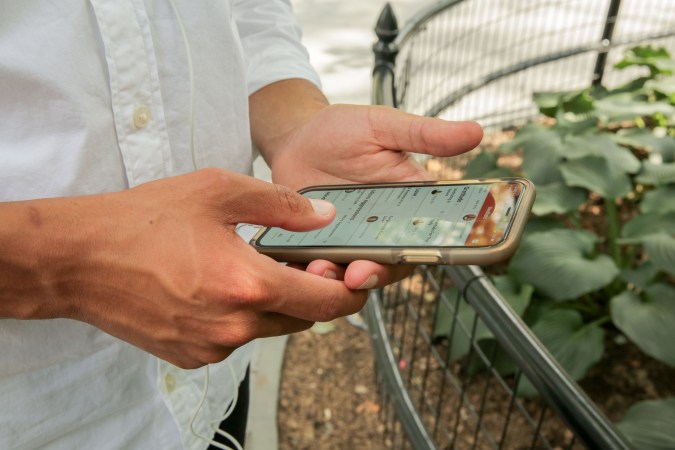
What is the most important lesson you’ve learned on this journey?
I had a realization that what’s been missing in my work is the joy of it. What has also been present is a constant fear that if I do not work on Liberate, everything will fall apart. Even with my daily morning and evening yoga and meditation practice, that’s not enough.
Being able to step away from the laptop and spend time on hobbies, dating and doing simple things like watch TV is something I’ve been working on. Spending time in nature with friends and family, picking up an instrument, watching Pixar movies and getting acupuncture done are all ways that I’m working to keeping myself more accountable with investing time in. I never watch TV and I recently finished three seasons of Dear White People in five days, which I don’t feel any guilt about at all.
Being able to disconnect from being an activist and entrepreneur is my self-care. When I am relaxed, I am more creative to think about how do we accomplish our vision. When I am relaxed, I experience joy in the work we are doing. When I am relaxed, I am more present with the volunteers helping out to get them what they need to succeed. Being relaxed is underrated and grinding all the time is really overrated.
